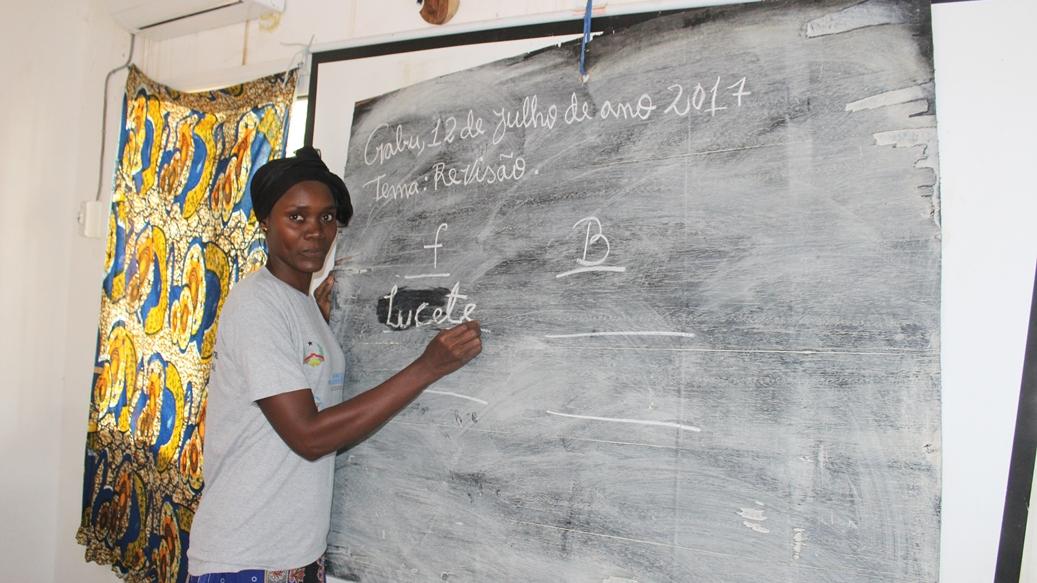In Guinea-Bissau, according to the last general population and housing census of 2009, 62.1 percent of women did not know how to read. Among men, the illiteracy rate was only 34.8 percent.
To reverse this situation the General Direction of Literacy has invested in adult education. In 2012, about 4 thousand adults were trained; in 2016 the number rose to 16 thousand, of which 12 thousand were women.
The Coordinator of the Oio region literacy centers, Braima Ndjai, said that "the greatest challenge of the general directorate is to be able to reduce the illiteracy rate by up to 30 percent by 2020, a goal established at CONFINTEA VI (International Conference on Adults). Currently the national rate is 49.9 percent, the aim is to lower this rate to achieve the goal."
Literacy projects have taken root in the regions, which has greatly contributed to the decline in the illiteracy rate at the national level.
In the southern region of Quinara, 45-year-old woman, Suncar Mané, is a student of a literacy school in Buba. Suncar said that now, "thanks to literacy programme, she can write her name, do some maths, which she could not do alone without the help from another person, so she calls on all women to go to literacy centers to get out of the darkness."
In the Bafatá region, east of the country, a young woman tells her story. Her aunt wanted to get her out from school to give her to someone for marriage. "I refused, I told my aunt that I'm not going to get married, I'm going to continue my school, we went to the police, then turned the case to court. In court they said I was younger, and giving a minor in marriage is a crime. I lost that school year, but the following year I continued and I finished my 12th grade," explained the girl with pride.
NGO “Afectos com Letras” was created in September 2009 with the aim of promoting education and is one of the most active in this field. The coordinator of this NGO, Joana Benzinho, said that "in a very near future to create a vocational training center for girls victims of forced marriage, where girls will have the opportunity to become independent, take care of their lives and have a better future."
Cristina Burgolio, UNICEF's Deputy Representative in Guinea-Bissau said that "they work in partnership with the Ministry of Education and other partners in the country in the framework of the program 2016-2020 focusing on primary education because 44 percent of children between the ages of 6 and 11 are out of the education system due to lack of access and quality education, and UNICEF will soon launch a campaign called 6/6 at the national level with the aim of sensitizing parents, teachers, and school principals to send their children to schools and leave them finish compulsory basic education."
Literacy is part of the United Nations Education Agenda 2030 whereby the international community commits itself to ensuring quality, inclusive and equitable education for all.






